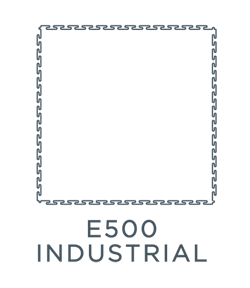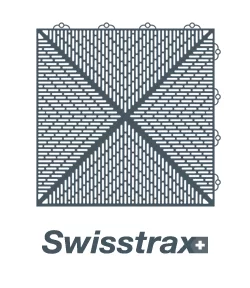Here are some of our most frequently asked questions about the Ecotile product range (E500), including weight, performance, material, size, adhesives, installation etc.
Hopefully, you’ll find the answer you’re looking for. If not, please get in touch and we’ll be happy to help. Our team is always available Monday to Friday, 8:30am to 5pm. Send us your question here, call us on +44 1582 219009 or email us at [email protected]
FAQs
How much weight can the E500 withstand?
We produce Ecotile floor tiles in different thicknesses. They are all designed for different uses, so if you’re not sure which tile you need for your application, we’ve created a handy quick guide. If you’d like to chat about which product is the most suitable for your specific need, just contact us with details of your operation, any weights being handled etc and our expert team will be able to help.
Our 7mm thick floor tile is our most popular, it’s for industrial and commercial use, and is suitable for vehicle use, including forklifts and pallet trucks.
Our 10mm thick floor tile is designed for very heavy industrial use. It’s recommended for use in areas where heavier fork trucks, aisle stackers or narrow aisle trucks are used. Or where HGVs will be executing tight manoeuvres or rotating wheels whilst stationary. Ecotile E500/10 has also proven to be extremely successful in aircraft hangars and on fire station pump room floors.
What is Ecotile made of?
It is made from high-quality virgin PVC pellets. All of our tiles are designed and manufactured by ourselves in our Bedfordshire factory. Each tile undergoes a rigorous quality control production process, and has a true thickness of material through the whole of the tile. No honeycomb backs on our tile design, so total reliability for strength and durability across the whole of the tile. With no weak spots.
Our tiles are also fully recyclable!
Can I use the tiles outside?
No, the tiles are designed to provide heavy-duty industrial flooring solutions for internal use only. If you want to use tiles outside, we’re the exclusive UK distributor for Swisstrax.
To discuss the Swisstrax range, or for any other questions about suitability for your needs, just fill out our Contact us form and we’ll get straight back to you.
Do I need to glue Ecotile down?
In the vast majority of applications, no adhesive is required; the tiles can be dry laid and will take forklift or vehicle traffic without a problem.
The only instances in which the tiles may require gluing is when there is a fork truck with a very high point loading (for example a three-wheel electric reach truck with the batteries located over the back wheel) that operates in a confined space with very tight turning circles. Or when part of the floor is likely to be exposed to much higher temperatures than the rest of the floor (e.g. in front of a furnace or oven or adjacent to a south-facing loading bay door).
If gluing is required the simplest adhesive to use is Pallman P9.
How long will my floor last?
With a regular cleaning and maintenance programme, Ecotile products will maintain great performance for 20 years +
Is there a reaction between rubber tyres and Ecotile?
- Use black or graphite tiles where tyres will sit.
- Use Durbar plates under wheels.
Can I use a Floor Jack on Ecotile?
Ecotile is extremely tough and hardwearing. It is a vinyl product so it will compress under heavy loads but will always return to its original shape. Please check our product overview page, or contact us on [email protected] or call +44 1582 219009 to identify which product would be most suitable for your application.
Can Ecotile garage floor tiles be used with catalytic converters?
Yes. When the car is running the catalytic converter gets extremely hot and if the car is left running whilst sitting on the tiles it may cause the tiles directly under the converter to expand through the heat. This is only a temporary issue and the tiles will shrink back to their original size once the heat source has been removed. In a busy commercial garage it is worth considering gluing the tiles down in-between the lifts or ramps where vehicles may be left with the engine running. Our experienced team will be able to advise you. Get it touch on [email protected], call 0800 802 1187 or via our quick contact form
Do the tiles require sealant?
No, however the application of 2 to 3 coats of a floor sealer will give the floor a high gloss appearance and make cleaning slightly easier in the long term.
How can I cut tiles?
You can cut them with a guillotine, hacksaw or jigsaw.
Cutting Allowance & Wastage
What cutting allowance / wastage factor should I allow – We recommend that you allow a 4% wastage factor for the 500/7, 500/ESD and 500/10 tiles and a 6% wastage factor for the 500/6 and 500/5 tiles. To make your calculations 100% correct, measure to the nearest 25 centimeters on the 500/7, 500/ESD and 500/10 tiles and 50 centimeters on the 500/6 and 500/5 tiles.
For example:
- 500/7, 500/ESD and 500/10 tiles – Room dimensions 6.1m x 3.7m – Calculate as 6.25m x 3.75m
- 500/6 and 500/5 til – Room dimensions 6.1m x 3.7m – Calculate as 6.5m x 4m
How many tiles will cover a square metre?
There are 4 tiles to a square metre.
Why is the Ecotile design better than other interlocking floor tiles?
The Purpose of grid pattern on the back of our tiles – both the open and hidden joint tiles have been designed to ensure absolute dimensional stability so that they fit perfectly without gaps between the joints or in the corners. It is our unique grid pattern that ensures dimensional stability – if you put 4 of our competitor’s tiles together you’ll see that where the 4 corners meet there is a small gap – this is because of how PVC behaves when you injection mould it into a solid piece.
Plastic will tend to want to curl over time, and a flat-backed tile will, after time, start to curl at each corner. The ridge pattern on Ecotile floor tiles ensures that the tile will remain flat for the life of the tile. A proven fact based on the physical and chemical properties of plastics.
The pockets of air create a cushion that prevents the Ecotile from rattling, which a flat-backed tile will do.
The little pockets of air also create a mini vacuum that stops the tile from slipping on the floor, especially if there is any oil, water or grease in the substrate. This is very important for small areas of tiles or where an island of tiles is being installed that is not butting up against retaining walls.
The grid pattern allows our tile to cope better with imperfections in the substrate.
The grid pattern allows the floor to breathe – very important if installing over concrete that hasn’t cured yet or if there is damp in the floor.
The tile design in the hidden joint is almost 100% waterproof.
Four of our tiles cover a square metre not 0.96m² as per many of our competitors.
Will water get underneath the tiles and start to smell?
In 25 years of trading we have never had a problem, in fact, a number of insurance companies have actually recommended customers who live in areas prone to flooding to use Ecotile, as water getting under the tiles doesn’t cause a problem and eliminates the need to replace flood damaged floor coverings.
The precision engineered joint is extremely tight but we do not claim that it is 100% waterproof. If large amounts of water are left to sit on the floor it is possible that some will seep through the joint. The most common concern people have is that the water will become stagnant and start to smell but this will not happen. Firstly the chemicals in PVC act as a natural biocide that prevents the growth of the bacteria that would make the water smell and secondly any moisture under the tiles will evaporate back up through the joint because the temperature above the tiles is almost certain to be higher than that under the tiles.
Can E500 be used with under floor heating?
Yes but please ensure that the underfloor heating has been turned on and allowed to reach its usual operating temperature before you start installation. Lay all full tiles, allow them to acclimatise and settle to the temperature of the underfloor heating for at least 24 hours before you cut the tiles up to the walls or any fixed points.
We’ve created a handy PDF guide to installing Ecotile PVC floor tiles on under floor heating
What are the electrical properties of the E500?
The standard ecotile has a surface resistance of 1014 and is suitable for use in areas where working voltage will not exceed 9,000v. Working volt test 450v.
Where are Ecotile interlocking floor tiles made?
All Ecotile PVC floor tiles are designed and made by us in our purpose built factory in Bedfordshire, Great Britain. We sell our own Ecotile industrial and commercial interlocking floor tiles direct to businesses across the UK. We also export Ecotile industrial floor tiles across Europe and worldwide. If you’d like to visit our factory, or require any of our accreditations or certification information, please don’t hesitate to get in touch on +44 1582 219009 or email us on [email protected]



